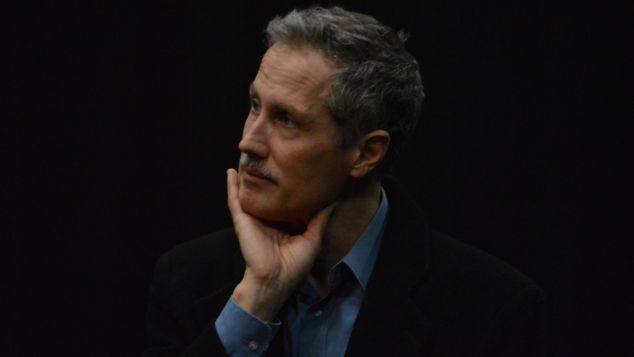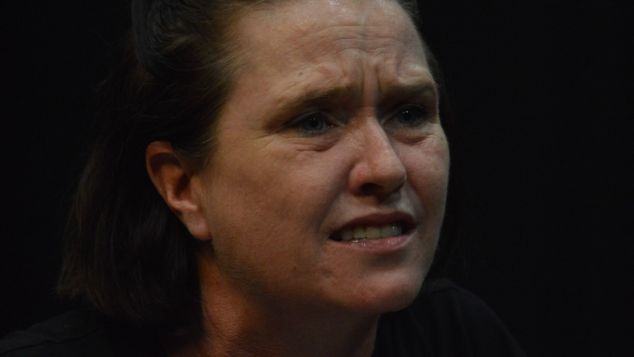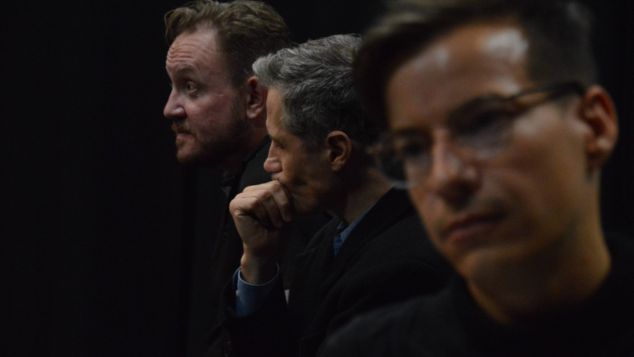
The Normal Heart | The Actor’s Hub | Until 18th Nov | ★ ★ ★ ★ ★
Taking in Larry Kramer’s play The Normal Heart must be a very different experience now to when it made its debut in 1985.
Documenting the early years of the AIDS crisis it follows a group of gay rights activists, health professionals and political staffers, as they try to get attention and support from those in power as they deal with a plague scenario which nobody seems to be able to explain, and few seem to care about.
The play covers the period from 1981 until 1984, and when it made it’s off Broadway debut it was a commentary on current events. When it was revived for a Broadway production in 2011 it took on new meaning with the benefit of 15 years of hindsight.
This production, like the recent staging on London’s West End, inherits an additional layer of relevance as the world’s steps out of another pandemic that disrupted lives and triggered fear and confusion.
Directed by Barry Park for GRADS, the UWA Dramatical Society, this is a powerful, moving and timely production that is delivered with great skill by a talented cast of local actors.
In 1981 we meet Ned Weeks (Zane Alexander), a gay Jewish writer who struggled to pull together an activist group to deal with the emerging health crisis among gay men. Weeks, whose life has many parallels to that of author Larry Kramer, is quickly frustrated by the lack of government interest, and various levels of discrimination, stigma and prejudice both from those he is battling in power, and from within the queer community.
His coalition features war veteran turned banker Bruce Niles (Phil Bedworth), sassy southerner Tommy Boatwright (Jordan Holloway), and office volunteer Grady (Jason Blaine). Together they must overcome their own differences to have an impact with their work.
He draws support and is challenged by his older brother Ben (Dean McAskil) and new lover, fashion journalist Felix (Steven Hounsome). While Dr Emma Brookner (Anna Head) provides a voice of stark reality in her assessment of the insurmountable challenge before them. Phillip Steele-Young plays political staffer Hiram Keebler, who becomes an ally but also voices the reasons why politicians failed to take action.

In one of the plays most powerful scenes, of which there are many; health worker Mickey expresses his frustration at the many rumours, conspiracy theories and wild ideas that people share about what causes AIDS.
The play is largely set before the discovery of HIV as the reason for the wave of deaths, and at the time people searched for answers and questioned if the advice that people should embrace monogamy or abstain from sex was just a just a reaction to the success of the 70’s gay liberation.
Mickey’s reaction feels incredibly understandable in the wake of our own more recent experiences with the Covid pandemic, as he wails in anger at the misinformation, disinformation and doubt he encounters around him you suddenly feel understanding for all the people voicing their conspiracy theories on social media, and the one relative that we all have who can’t help but set out their latest belief about how you can’t trust politicians, the media or medical professionals.

Throughout the play the impulsive and loud-mouthed Ned comes up against challenges from within his own community. As people urge him not to rock the boat, show more patience and curtail his blunt statements to those in power.
Ned’s frustration is what makes this story eternally relevant. As you watch him openly criticise his colleagues, call out politicians who brush off issues or provide a long list of reasons why a can needs to be kicked down a road, you can’t help but think about all the ‘Ned Weeks’ in our own community – and where we’d be without them.
Ultimately this is a play about the early days of the AIDS crisis, and while you may have seen the 2014 film based on the play, it is nothing like seeing the work performed on a stage. It’s long and stark scenes carry a powerful emotional punch that is lost when the story is transferred to the screen.
You might know the history of HIV and the community that came together to make a difference, but seeing this production allows you experience it on a massively emotional level.
A Normal Heart stands alongside other recent stories that have examined those early days of the battle against HIV.
It tells the story of HIV from its earliest outbreak in New York and stands shoulder-to-shoulder with works like Russel T. Davies TV series It’s a Sin, which is set in London, and to a lesser extent Australia’s recent TV series In Our Blood. For an Australian account of the heartbreak of the AIDS crisis you can’t go past Timothy Conigrave’s autobiography Holding the Man which has been adapted into a play and a feature film.
The Actor’s Hub in East Perth is not the greatest stage in town, and some seats have limited views of the stage, so book quickly to make sure you get a seat up front.
This is a work that deserves to be on a much bigger stage and it’s a story that we need to keep sharing. It’s poignant, powerful, exceptionally relevant and very well done.
Remaining Performances 8, 9, 10, 11, and 15, 16, 17, 18th November at 7.30pm and 5 and 12th November at 2pm, during PrideFEST 2023. Book tickets now.
Graeme Watson
Get the facts about living with HIV at WAAC.
You can support our work by subscribing to our Patreon
or contributing to our GoFundMe campaign.





